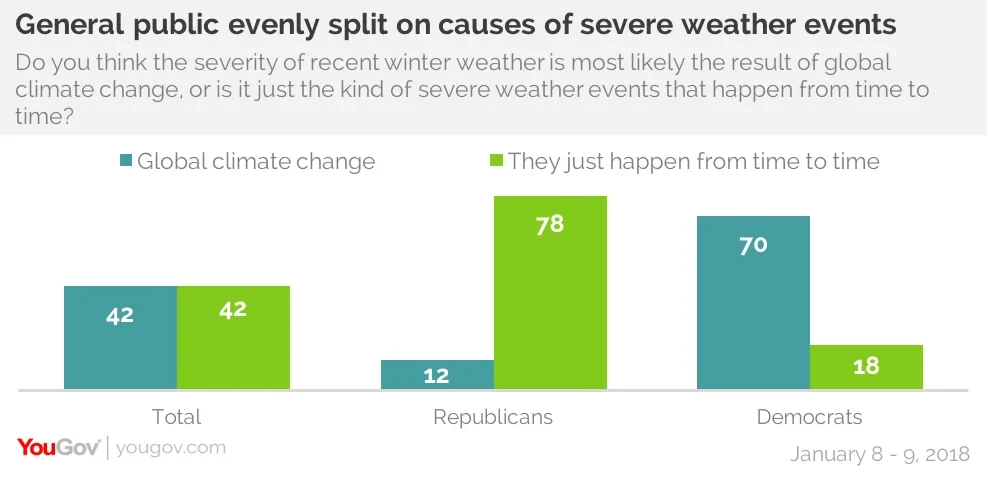46% of Democrats think most or all government statistics are reliable, while only 20% of Republicans agree
Facts and numbers, especially those from the government, used to be considered accurate and free from political manipulation – but that has not been true in recent years. Perceptions of the economy and the jobless rate have done partisan flips depending who is in the White House. When a Democrat, Barack Obama, was in the White House, Economist/YouGov Polls found much skepticism among Republicans about decline in the jobless rate.
Despite the change in presidential Administrations, many Republicans have remained skeptical about the accuracy of government statistics.
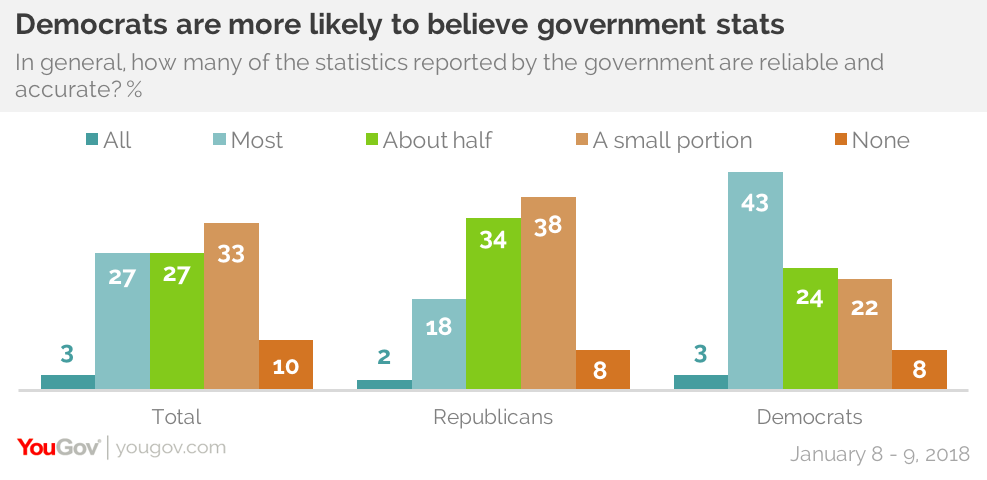
In 2014, with a Democratic in the White House, Republicans were just as skeptical. Democratic skepticism has increased a bit since then.
Where Republicans and Democrats agree is on the existence of an undercount in the U.S, Census. 51% of Democrats and 55% of Republicans believe there were more people living in the United States in 2010 than were counted in the 2010 Census. However, most Democrats with an opinion think the number of government-reported signups for health insurance under the Affordable Care Act was accurate, while Republicans with an opinion think there were fewer than reported. Republicans also are more likely than Democrats to disagree with government figures that say that crime is declining, but Republicans are less likely to think that sexual assaults are underreported.
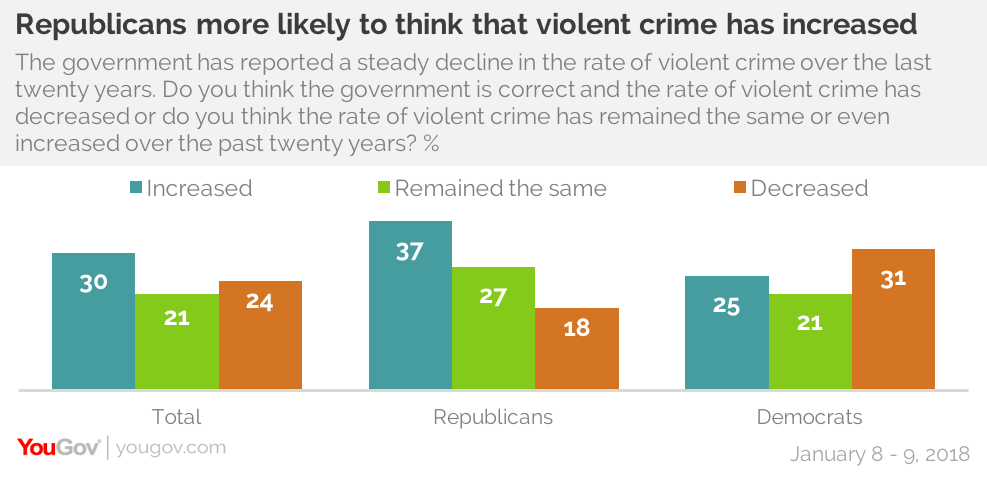
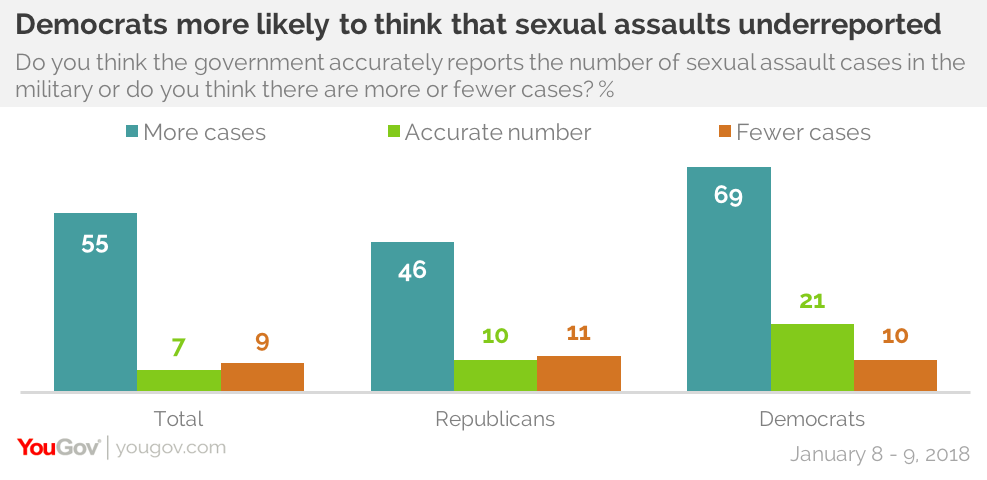
Nowhere is the impact of politics more clear than in how people evaluate the accuracy of government figures on the economy, particularly the unemployment statistics. On that there has been a big change: Republicans now are more willing to accept that the reported unemployment rate is accurate. Despite the dropping unemployment rate in the last years of the Obama Administration, Donald Trump and many Republicans refused to accept the accuracy of those same statistics.
In the last year, the official jobless rate has continued its decline, and is now at 4.1%. And opinions have changed. Now that he is President, Donald Trump has declared the unemployment rate “not phony.” Like all Presidents, he can claim credit for the decline during his presidency. And Republicans as well are much more likely to credit the accuracy of the jobless numbers. If anything, Democrats have become less trusting.
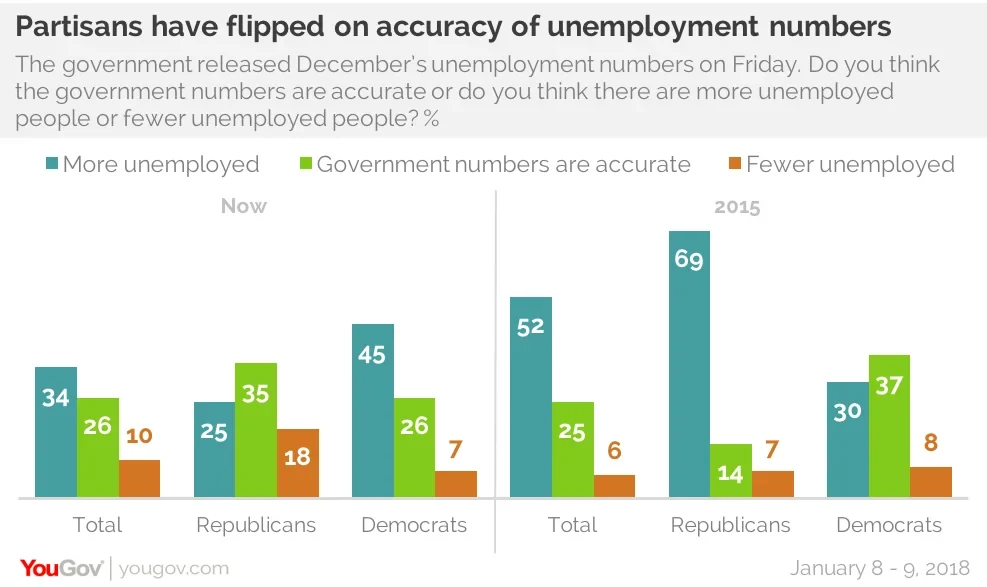
A majority of both Republicans and Democrats have at least some trust in the government’s economic data. But about a third in each party do not.
Republicans continue to be skeptical of any human role in climate change. Though three in four Republicans agree that the climate is changing, most of them say human actions are not to blame. In contrast, 83% of Democrats believe the world’s climate is changing as a result of human activity. But just as Republicans are more dubious about the accuracy of many government statistics, Republicans are also not convinced in the existence of a scientific consensus about climate change. Just 36% of Republicans agree there is such a consensus.
Two striking party differences come on the personal impact of climate change. For most Democrats, climate change is part of their lives. Seven in ten Democrats have personally seen the effects of climate change and 81% expect they will see the impact in their lifetime. Only one in four Republicans expect they ever will be affected personally by climate change.
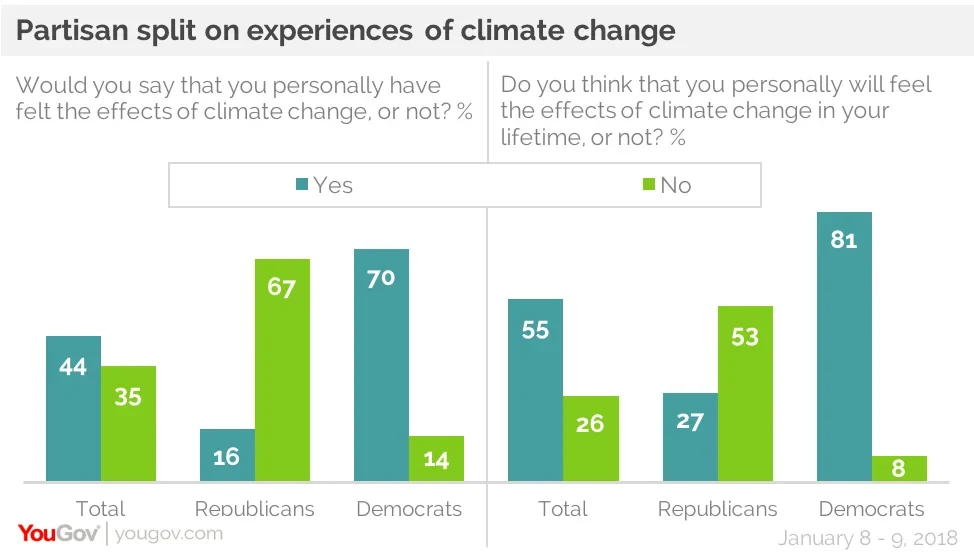
More than seven times as many Democrats (60%) as Republicans (8%) say they are very concerned about the impact of climate change. Just one in four Republicans are even somewhat concerned; 40% say they are “not concerned at all.” There is more concern in the West and Northeast, which have been subject to recent severe weather incidents. But those are also the parts of the country with more Democrats.
The public is divided on what the recent severe weather really means. To Democrats, the severity of recent winter weather is the result of global climate change; to Republicans, those storms are just things that happen from time to time.
